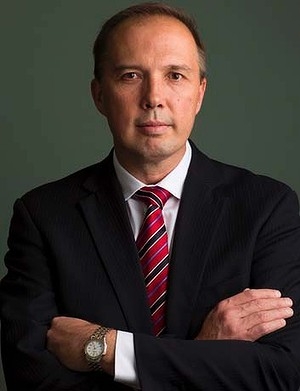
Health Minister Peter Dutton has predicted the introduction of a fee to visit the doctor will improve health outcomes by making it easier for patients to get an appointment and for doctors to spend more time with patients.
In an interview with Fairfax Media on Thursday, Mr Dutton said some medical practices had used bulk-billing as a “business enhancement technique” and the fee would create an incentive for doctors to charge all but the most needy patients for their care.
“It becomes a true safety net,” he said. “At the moment, practices in capital cities are bulk-billing to gain market share.”
The $7 fee, which will apply to GP visits, pathology services such as blood tests and diagnostic imaging services such as X-rays, was announced in the federal budget on Tuesday and will take effect from July 2015.
Labor, doctors and public health advocates have attacked the change, predicting it would hit the poor and sick hardest and place extra pressure on already strained public hospitals
Mr Dutton said it was “not sustainable” for the Commonwealth to continue to fund 263 million Medicare services a year at no charge to the patient, nor for 70 per cent of non-concessional patients to continue to be bulk-billed.
He said doctors would continue to have the option of treating patients without charge, but they would have to absorb a $5 cut to the Medicare rebate, as well as forgo an incentive payment of up to $9 which will be paid to doctors who charge the $7 fee to concessional patients.
“Bulk-billing still is retained as a feature, but doctors will have to apply it with greater discretion,” Mr Dutton said.
Australian Medical Association president Steve Hambleton has said it would be unreasonable to expect doctors to accept what amounts to a 25 per cent cut in their remuneration.
Mr Dutton said requiring patients to pay to visit their GP would reduce the number of “marginal attendances” and make it easier for people to get an appointment with their doctor when they need to. He said the $2 doctors would receive from patients above the $5 compensation for the rebate cut would be a “significant windfall” for doctors which would lead to fewer doctors “churning people through every six minutes”.
“I think we’ll drive better health outcomes out of this,” he said.
Mr Dutton rejected the suggestion that reductions to expected Commonwealth funding for public hospitals totalling more than $3 billion over the next four years would lead to patients waiting longer for surgery or emergency treatment.
He said the states needed to find ways to run hospitals more efficiently, including by learning from the private sector.
“If we can liberate them from the intrusive hand that is the public service in Canberra we can allow these hospitals at the state level to get on and run their own show,” he said.
He said in Queensland under the former Labor government, a union delegate’s written authority was required for shift changes in public hospitals.
“Nine and 10 levels of management were required for approval to purchase cleaning products. Those sorts of practices which stifle productivity are completely unacceptable going forward.”
Source: Sydney Morning Herald
